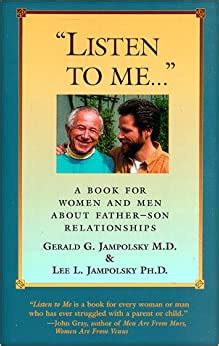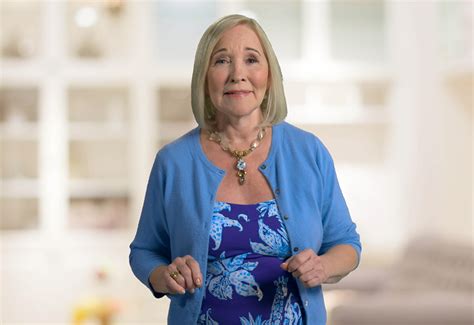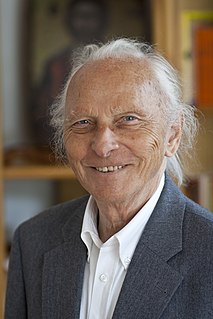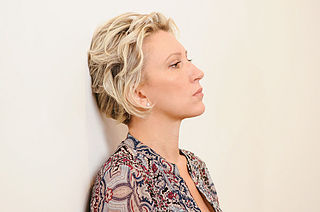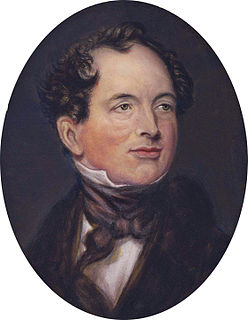A Quote by Lee L Jampolsky
The body can limit our ability to experience life to the fullest, especially if we identify ourselves as being only our bodies.
Related Quotes
If we only identify with the mortal world, then we identify with a level of scarcity and lack and brokenness, and that will be our experience. But if we shift our experience of self-identification - and this is what enlightenment is - from the body-self to the spiritual-self, then we place ourselves under an entirely different set of possibilities and probabilities.
Jung said there are four archetypes adults go through, and these archetypes are reflected in the development of my work. The first archetype is the archetype of the athlete, reflecting the time in our adult life when our primary emphasis is on our body - what it looks like, how beautiful it is, how strong it is, and so on. We identify ourselves with our body. We are our body. Growing adults next move to what Jung called the archetype of the warrior. We take our physical bodies out there to do what warriors do.
The image of the Goddess inspires women to see ourselves as divine, our bodies as sacred, the changing phases of our lives as holy, our aggression as healthy, our anger as purifying, and our power to nurture and create, but also to limit and destroy when necessary, as the very force that sustains all life. Through the Goddess we can discover our strength, enlighten our minds, own our bodies, and celebrate our emotions. We can move beyond narrow, constricting roles and become whole.
Healing ourselves on the spiritual level involves developing a strong connection with our soul. We heal ourselves on the mental level as we become aware of our core beliefs, release those that limit us, and open to more supportive ideas and greater understanding. Emotional healing takes place as we learn to accept and experience the full range of our feelings. And we heal ourselves on the physical level when we learn to honor and care for our bodies, and for the physical world around us.
Consciousness creates the body. Our bodies are made up of dynamic energy systems that are affected by our diets, relationships, heredity, and culture and the interplay of all these factors and activities... We cannot hope to reclaim our bodily wisdom and inherent ability to create health without first understanding the influence of our society on how we think about and care for our bodies.
Our ability to understand ourselves is now expanding beyond the information that we can receive from our five senses. We're becoming aware of ourselves as more than minds and bodies. We are becoming aware of ourselves as souls while we simultaneously have personalities and walk upon the earth. That is the huge transformation that is reshaping the human experience - the expansion of our perceptual capability beyond the five senses. We're becoming multisensory.
We are completely unaware of our true nature because we identify ourselves with our body, our emotions and our thoughts, thus losing sight of our unchanging centre, which is pure consciousness. When we return to our true nature, our thoughts and perceptions no longer appear as modifications of a single substance, they come into being and subside like waves of the ocean.
Your body is the ground metaphor of your life, the expression of your existence... So many of us are not in our bodies, really at home and vibrantly present there. Nor are we in touch with the basic rhythms that constitute our bodily life. We live outside ourselves - in our heads, our memories, our longings - absentee landlords of our own estate. My way back into life was ecstatic dance. I reentered my body by learning to move my self, to dance my own dance from the inside out, not the outside in.
Realizing that our minds control our bodies while our bodies reflect our minds amounts to understanding the most fundamental aspects of ourselves. It further equals a comprehension of the relationship between our "tools." And since the mind and body are interrelated, this understanding makes it easier to see why coordinating them is a practical way of using these tools to greatest effect-a way of using the mind and body to live our lives as art.
We usually do pay attention to our outer appearance, typically noticing whatever part of our bodies we are unhappy about. It behooves us, however, to get on very good terms with more than just the surface of our bodies as we grow older; for if we don't listen to our bodies and pay attention to our physical needs and pleasures, this vehicle that we need to be running well to take us into a long and comfortable life, will limit what we can do and who we become.
Ninety percent of our lives is governed by emotion. Our brains merely register and act upon what is telegraphed to them by our bodily experience. Intellect is to emotion as our clothes are to our bodies; we could not very well have civilized life without clothes, but we would be in a poor way if we had only clothes without bodies.
His true Being comes to light and even penetrates his clothing. We should not limit ourselves to Jesus. We have to recognize ourselves, our own true form... Life would be so simple if we could always see what we are; if we could recognize what our neighbors are. If we could see the beams of light that pass through their clothing; if we could not only see their external form, but also experience their true being.
It was frankly sort of confusing, the way everyone stared at our bodies exactly as they tried to erase the ideas of our bodies from our minds. We were supposed to get over ourselves but no one was supposed to get over us. The female body was our worst handicap and our best advantage - the surest means to success, the surest course to failure.
We think that by protecting ourselves from suffering, we are being kind to ourselves. The truth is we only become more fearful, more hardened and more alienated. We experience ourselves as being separate from the whole. This separateness becomes like a prison for us - a prison that restricts us to our personal hopes and fears, and to caring only for the people nearest to us. Curiously enough, if we primarily try to shield ourselves from discomfort, we suffer. Yet, when we don't close off, when we let our hearts break, we discover our kinship with all beings.
When we relate to our bodies as having soul, we attend to their beauty, their poetry and their expressiveness. Our very habit of treating the body as a machine, whose muscles are like pulleys and its organs engines, forces its poetry underground, so that we experience the body as an instrument and see its poetics only in illness.
